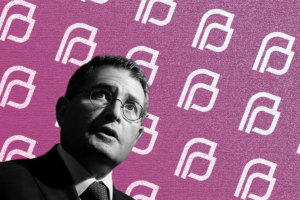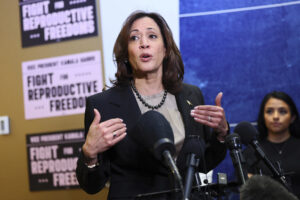McCain Capitalizes on Conservative Anxiety
The strangest thing about John McCain's campaign for president is that it's supposed to be dead, but it isn't. This is a real nuisance for his competitors.GOFFSTOWN, N.H. — The strangest thing about John McCain’s campaign for president is that it’s supposed to be dead, but it isn’t. This is a real nuisance for his competitors.
The comeback is not showy or dramatic. And it’s true that while McCain is better off than he was in July when his campaign imploded in a dazzling display of financial mismanagement and staff recriminations, he still faces a more difficult route to nomination than his well-financed rivals, Rudy Giuliani and Mitt Romney.
McCain himself, the overwhelming favorite a year ago, is cheerfully humble in characterizing his standing. “We’ve got a long way to go, but we are in the mix,” he said Sunday on CNN’s “Late Edition.” In the mix is a big improvement over being out.
Nationally, McCain got a boost last weekend when a new Washington Post-ABC News Poll showed him in second place to Giuliani. The former New York City mayor had 33 percent; McCain, 19 percent; and the stalled Fred Thompson, 16 percent. Romney, who leads in both Iowa and New Hampshire, came in at 11 percent and Mike Huckabee had 9 percent.
The most interesting numbers are those of Huckabee and McCain. The former is finally being taken seriously not only by the press, but also by Republican voters. McCain rose from just 12 percent a month ago.
Thompson’s sluggishness has been a form of life support for McCain. Nowhere more so than in New Hampshire, which McCain took by storm seven years ago against George W. Bush. This state’s Jan. 8 primary only recently looked to be Romney’s launching pad to national stardom — or Giuliani’s opportunity to finish off Romney. Now Romney and Giuliani have to calculate how McCain might figure in their plans.
The mood of McCain’s loyalists here combines relief with that certain restrained glee that comes from walking away in one piece from a car wreck. Jim Barnett, the candidate’s New Hampshire state director, traces McCain’s local comeback to his strong debate performance in early September and his renewed emphasis on the freewheeling town meeting formats that made him so many friends in this state.
Barnett points to a moment during a mid-October gathering in Hopkinton where McCain confronted a questioner who spoke of the “anger the average European Christian, native-born American feels when they see their country turning into a multicultural chaos Tower of Babel.”
McCain has tried to appease conservative critics of his support for a path to citizenship for undocumented immigrants by stressing the need to secure the nation’s borders first. His new stance, he says, reflects “a lesson learned about what the American people’s priorities are.”
But at the Hopkinton meeting, McCain was his old, combative self. He condemned his interlocutor’s language and declared he was “grateful to live in a nation that has been enriched by people coming to our nation from around the world.” The applause, Barnett recalls with pride, “went on for a long time.”
Yet there is also cold calculation on the part of Republicans who are giving McCain a second look. Their challenge is to find a candidate who can broaden the party’s currently anemic appeal while still holding it together.
Giuliani says he is that man, and he has stepped up his campaigning in a state whose libertarian streak makes his support for abortion rights less toxic. At a news conference following a speech at the New Hampshire Institute of Politics, Giuliani stressed his ability to turn the GOP into “a 50-state party” and argued that voters who didn’t like his abortion views would definitely like the judges he would appoint.
McCain, on the other hand, has always been an abortion foe. His campaign argues that he can appeal outside Republican ranks without alienating pro-life voters, as Giuliani would. Conservative voters are paying attention.
Still, both McCain and Giuliani need to overcome Romney’s lead here, built by intensive television advertising and extensive, New Hampshire-style personal campaigning. Tom Rath, a key local adviser to Romney, thinks McCain “has done a great job” in rebuilding his standing, but sees a ceiling on the Arizona senator’s support. “It’s difficult for McCain to give voters new information about himself,” Rath said, “since they already know him so well.” McCain’s strong endorsement of the Iraq war is also hurting him among independent voters, the backbone of his 2000 movement.
That McCain is still standing is a credit to his persistence. But it is also a symptom of the anxieties and misgivings among Republican voters over the choices they confront in this dark time for their party.
E.J. Dionne’s e-mail address is postchat(at)aol.com.
© 2007, Washington Post Writers Group
Your support is crucial…With an uncertain future and a new administration casting doubt on press freedoms, the danger is clear: The truth is at risk.
Now is the time to give. Your tax-deductible support allows us to dig deeper, delivering fearless investigative reporting and analysis that exposes what’s really happening — without compromise.
Stand with our courageous journalists. Donate today to protect a free press, uphold democracy and unearth untold stories.









You need to be a supporter to comment.
There are currently no responses to this article.
Be the first to respond.